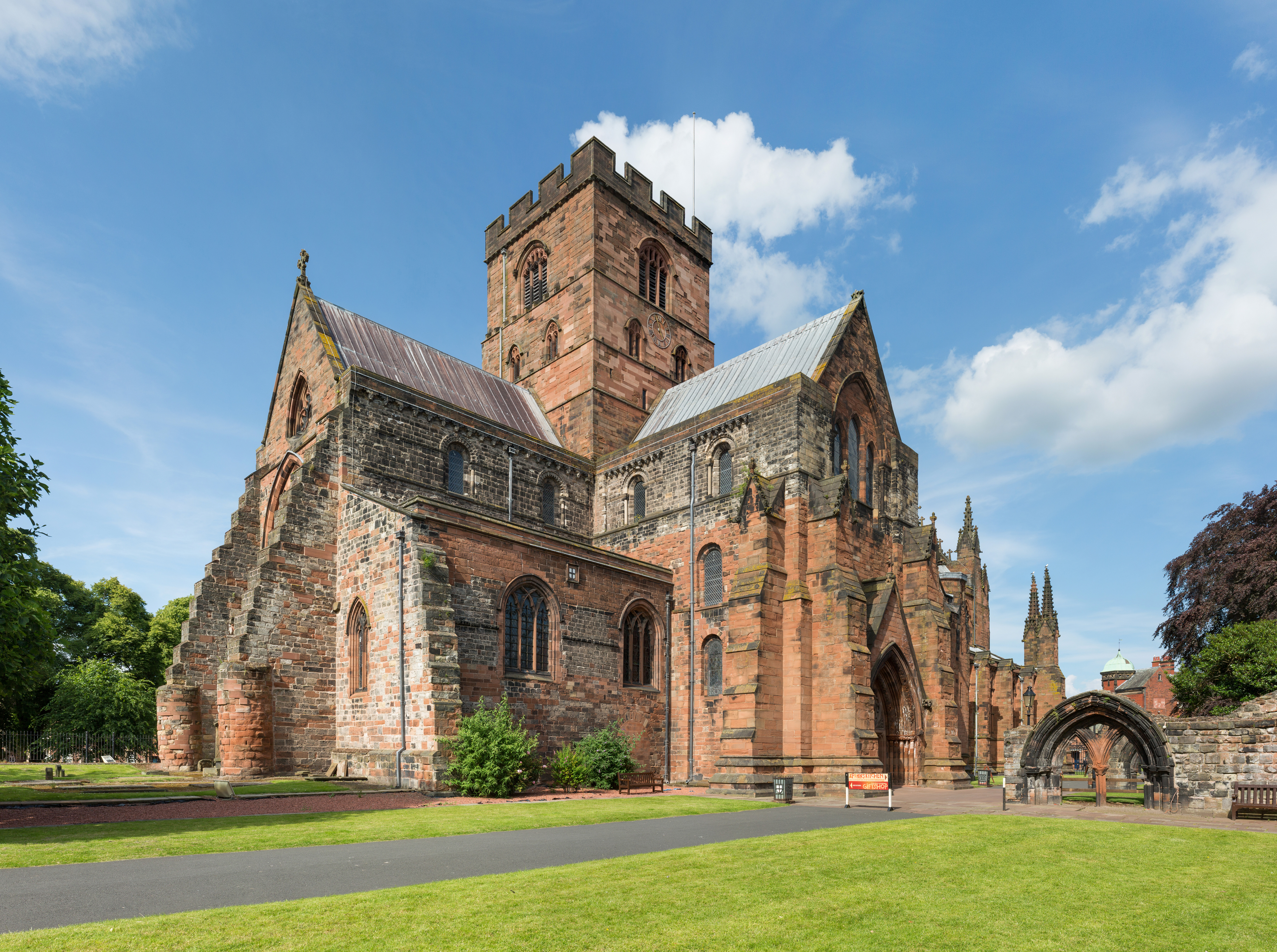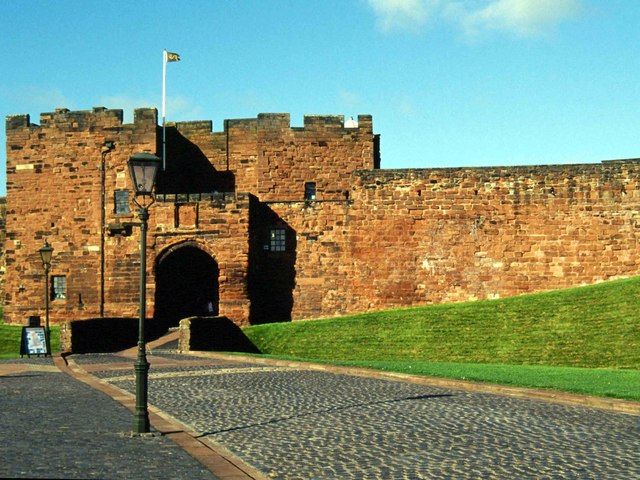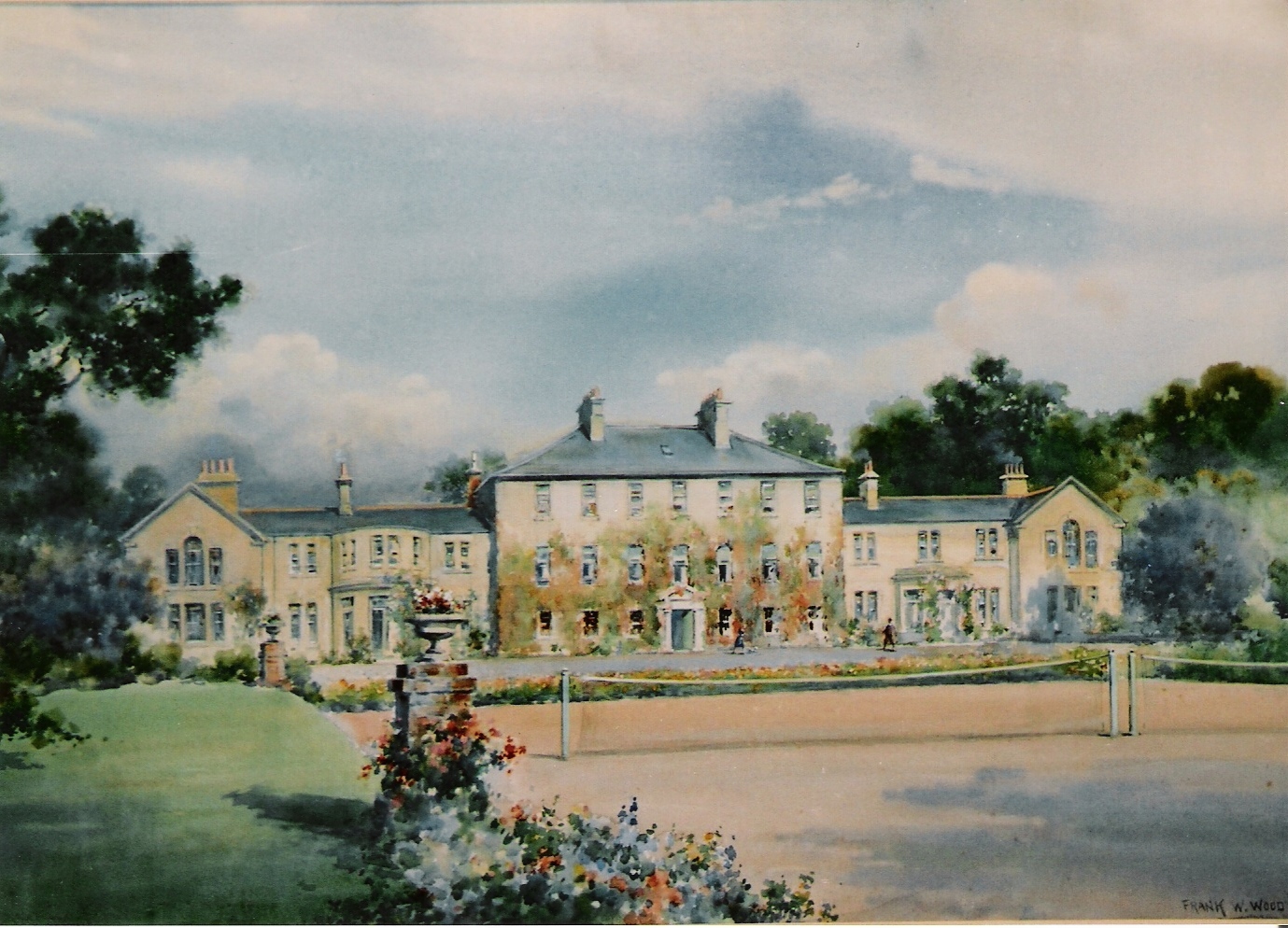|
Charles Douglas, 5th Lord Mordington
Charles Douglas, 5th Lord Mordington (d. after 1746), son of George Douglas, 4th Lord Mordington by his wife Catherine née Lauder, was a Jacobite. He went to sea when he was young and did not return to Britain until after his father's death. Engaging in the 1745 Jacobite rebellion, he was captured at Carlisle, and tried on 11 September 1746 under the designation of Charles Douglas, Esquire. He then pleaded his peerage, which was objected to by the counsel for the Crown, but upon proof being provided his trial was postponed and he was imprisoned on remand in Carlisle Castle, from which he was soon released. Upon the abolition of heritable jurisdictions the following year, he claimed for the privilege of Regality over the lands of Nether Mordington Mordington is an agricultural parish in the extreme south-east of Berwickshire in the Scottish Borders region. It is five miles from Berwick-upon-Tweed and borders Northumberland to the east, and south (where the boundary is the Wh ... [...More Info...] [...Related Items...] OR: [Wikipedia] [Google] [Baidu] |
George Douglas, 4th Lord Mordington
George Douglas, 4th Lord Mordington, died 10 June 1741 at Covent Garden, London, was the son and heir of James Douglas, 3rd Lord Mordington by his wife Anne, daughter of Alexander Seton, 1st Viscount of Kingston. George, Lord Mordington, is described by several authorities as a political writer. He obtained a prominent mention in Walpole's ''Royal and Noble Authors'' (Parks edition, vol.v, p. 147) as the author of a work called ''The Great Blessing of a Monarchical Government'' – "when fenced about with and bounded by the laws, and these laws secured and observed by the monarch". Mordington added "that as a Popish government is inconsistent with the true happiness of these kingdoms, so great also are the miseries and confusions of anarchy. Most humbly dedicated to His Majesty by George Douglas, Lord Mordington, London, 1724." Two pieces against a weekly paper called the ''Independent Whig'' are also mentioned by Walpole as being written by Lord Mordington. He married Cather ... [...More Info...] [...Related Items...] OR: [Wikipedia] [Google] [Baidu] |
Jacobitism
Jacobitism (; gd, Seumasachas, ; ga, Seacaibíteachas, ) was a political movement that supported the restoration of the senior line of the House of Stuart to the Monarchy of the United Kingdom, British throne. The name derives from the first name of James II and VII, which in Latin translates as ''Jacobus (name), Jacobus''. When James went into exile after the November 1688 Glorious Revolution, the Parliament of England argued that he had abandoned the Kingdom of England, English throne, which they offered to his Protestant daughter Mary II, and her husband William III of England, William III. In April, the Convention of Estates (1689), Scottish Convention held that he "forfeited" the throne of Scotland by his actions, listed in the Articles of Grievances. The Revolution thus created the principle of a contract between monarch and people, which if violated meant the monarch could be removed. Jacobites argued monarchs were appointed by God, or Divine right of kings, divine right, a ... [...More Info...] [...Related Items...] OR: [Wikipedia] [Google] [Baidu] |
Carlisle, Cumbria
Carlisle ( , ; from xcb, Caer Luel) is a city that lies within the Northern English county of Cumbria, south of the Scottish border at the confluence of the rivers Eden, Caldew and Petteril. It is the administrative centre of the City of Carlisle district which, (along with Cumbria County Council) will be replaced by Cumberland Council in April 2023. The city became an established settlement during the Roman Empire to serve forts on Hadrian's Wall. During the Middle Ages, the city was an important military stronghold due to its proximity to the Kingdom of Scotland. Carlisle Castle, still relatively intact, was built in 1092 by William Rufus, served as a prison for Mary, Queen of Scots in 1568 and now houses the Duke of Lancaster's Regiment and the Border Regiment Museum. In the early 12th century, Henry I allowed a priory to be built. The priory gained cathedral status with a diocese in 1133, the city status rules at the time meant the settlement became a city. Fro ... [...More Info...] [...Related Items...] OR: [Wikipedia] [Google] [Baidu] |
Carlisle Castle
Carlisle Castle is a medieval stone keep castle that stands within the English city of Carlisle near the ruins of Hadrian's Wall. First built during the reign of William II in 1093 and rebuilt in stone under Henry I in 1122, the castle is over 900 years old and has been the scene of many historical episodes in British history. Given the proximity of Carlisle to the border between England and Scotland, it has been the centre of many wars and invasions. During the Jacobite Rising of 1745–6, Carlisle became the last English fortress to undergo a siege. The castle was listed as a Scheduled Ancient Monument on 7 August 1996. Today the property is managed by English Heritage and is open to the public. Until 2006, the castle was the administrative headquarters of the former King's Own Royal Border Regiment and until 2019 it was the county headquarters to the Duke of Lancaster's Regiment. A museum to the regiment is within the castle walls. History Carlisle Castle was first bu ... [...More Info...] [...Related Items...] OR: [Wikipedia] [Google] [Baidu] |
Heritable Jurisdictions
Heritable jurisdictions were, in the law of Scotland, grants of jurisdiction made to a man and his heirs. They were a usual accompaniment to feudal tenures and conferred power on great families. Both before and after the Union frequent attempts were made by statute to restrict them since they were recognized as a source of danger to the state. All were finally abolished by the Heritable Jurisdictions Act in 1747, following the Jacobite rising of 1745 The Jacobite rising of 1745, also known as the Forty-five Rebellion or simply the '45 ( gd, Bliadhna Theàrlaich, , ), was an attempt by Charles Edward Stuart to regain the Monarchy of Great Britain, British throne for his father, James Franci ..., with compensation available upon formal application by the dispossessed. ---- Feudalism in Scotland Scots law legal terminology Property law of the United Kingdom Jurisdiction Real property law 1747 disestablishments in Europe 1747 disestablishments in Great Britain 1747 dise ... [...More Info...] [...Related Items...] OR: [Wikipedia] [Google] [Baidu] |
Regality
A regality was a territorial jurisdiction in old Scots law which might be created by the King or Queen only, by granting lands to a subject ''in liberam regalitatem'', and the tract of land over which such a right extended. A lord of regality had a civil jurisdiction equal to that of the monarch's sheriff, and more extensive criminal jurisdiction, equivalent to that of the High Court of Justiciary (except for treason). A regality was a superior jurisdiction to a barony and might be exercised over baronies within the regality. The jurisdiction was exercised by the regality court, usually presided over by the bailie or his deputy, and composed of the suitors of court, who held lands by suit of court. Initially regalities were a part of the system of government, delegated jurisdiction, but from the 14th century, the lords of regality frequently sought to usurp royal authority and establish semi-independent domains. In the 15th century, regalities again became a means of governing ... [...More Info...] [...Related Items...] OR: [Wikipedia] [Google] [Baidu] |
Mordington
Mordington is an agricultural parish in the extreme south-east of Berwickshire in the Scottish Borders region. It is five miles from Berwick-upon-Tweed and borders Northumberland to the east, and south (where the boundary is the Whiteadder Water), Foulden to the west, and Lamberton to the north. The parish is bisected by the A6105 Berwick to Duns road. The lower part of the parish is covered by the Edrington estate. It is possibly the warmest parish in Scotland; the annual hours of sunshine are said to be almost as high as at Dunbar, which records the most hours in Scotland. Origins It is said that there was once a Saxon village, dating from the 11th century, in the northern part of the parish but this has long vanished. Originally claimed by Coldingham Priory, the larger part of the parish eventually came into the possession of the de Mordington family who appear to have failed in the male line. Sir Peter de Mordington, knight, son of the deceased Sir William de Mordington ... [...More Info...] [...Related Items...] OR: [Wikipedia] [Google] [Baidu] |
Herbert Maxwell
Sir Herbert Eustace Maxwell, 7th Baronet, (8 January 1845 – 30 October 1937) was a Scottish novelist, essayist, artist, antiquarian, horticulturalist, prominent salmon angler and author of books on angling and Conservative politician who sat in the House of Commons from 1880 to 1906. Early life A member of Clan Maxwell descended from the first Lord Maxwell of Caerlaverock Castle, Maxwell was the eldest surviving son of Lieutenant-Colonel Sir William Maxwell, 6th Baronet and his wife, Helenora Shaw-Stewart, daughter of Sir Michael Shaw-Stewart, 5th Baronet. He was educated at Eton and at Christ Church, Oxford. He was a captain in the 4th battalion Royal Scots Fusiliers and a J.P. and Deputy Lieutenant for Wigtownshire. Political career Maxwell was elected Member of Parliament for Wigtownshire in the 1880 general election and held the seat until 1906. He served in the Conservative administration of Lord Salisbury as a Junior Lord of the Treasury from 1886 to 1892 an ... [...More Info...] [...Related Items...] OR: [Wikipedia] [Google] [Baidu] |
Scottish Jacobites
Scottish usually refers to something of, from, or related to Scotland, including: *Scottish Gaelic, a Celtic Goidelic language of the Indo-European language family native to Scotland *Scottish English *Scottish national identity, the Scottish identity and common culture *Scottish people, a nation and ethnic group native to Scotland *Scots language, a West Germanic language spoken in lowland Scotland *Symphony No. 3 (Mendelssohn), a symphony by Felix Mendelssohn known as ''the Scottish'' See also *Scotch (other) *Scotland (other) *Scots (other) *Scottian (other) *Schottische * {{disambiguation Scottish people, Language and nationality disambiguation pages ca:Escocès ... [...More Info...] [...Related Items...] OR: [Wikipedia] [Google] [Baidu] |
Scottish Soldiers
Scottish usually refers to something of, from, or related to Scotland, including: *Scottish Gaelic, a Celtic Goidelic language of the Indo-European language family native to Scotland *Scottish English *Scottish national identity, the Scottish identity and common culture *Scottish people, a nation and ethnic group native to Scotland *Scots language, a West Germanic language spoken in lowland Scotland *Symphony No. 3 (Mendelssohn), a symphony by Felix Mendelssohn known as ''the Scottish'' See also *Scotch (other) *Scotland (other) *Scots (other) *Scottian (other) *Schottische The schottische is a partnered country dance that apparently originated in Bohemia. It was popular in Victorian era ballrooms as a part of the Bohemian folk-dance craze and left its traces in folk music of countries such as Argentina ("chotis"Span ... * {{disambiguation Language and nationality disambiguation pages ca:Escocès ... [...More Info...] [...Related Items...] OR: [Wikipedia] [Google] [Baidu] |
Lords Of Parliament
A Lord of Parliament ( sco, Laird o Pairlament) was the holder of the lowest form of peerage, entitled as of right to take part in sessions of the pre-Union Parliament of Scotland. Since that Union in 1707, it has been the lowest rank of the Peerage of Scotland, ranking below a viscount. A Lord of Parliament is said to hold a ''Lordship of Parliament''. Details The peerage of Scotland differs from those of England and Ireland, in that its lowest rank is not that of baron. In Scotland, the term "baron" refers to a feudal baron, considered to be a minor lord who is not a peer, approximately equal to a baron in some continental countries. The Scottish equivalent to the English baron is the Lord of Parliament. A male holder of such a lordship is designated a "Lord of Parliament," while there is no similar designation for female holders. Lords of Parliament are referred to as ''Lord X'', while female holders of Lordships of Parliament are known as ''Lady X''. The wife of a Lord of ... [...More Info...] [...Related Items...] OR: [Wikipedia] [Google] [Baidu] |
18th-century Deaths
The 18th century lasted from January 1, 1701 ( MDCCI) to December 31, 1800 ( MDCCC). During the 18th century, elements of Enlightenment thinking culminated in the American, French, and Haitian Revolutions. During the century, slave trading and human trafficking expanded across the shores of the Atlantic, while declining in Russia, China, and Korea. Revolutions began to challenge the legitimacy of monarchical and aristocratic power structures, including the structures and beliefs that supported slavery. The Industrial Revolution began during mid-century, leading to radical changes in human society and the environment. Western historians have occasionally defined the 18th century otherwise for the purposes of their work. For example, the "short" 18th century may be defined as 1715–1789, denoting the period of time between the death of Louis XIV of France and the start of the French Revolution, with an emphasis on directly interconnected events. To historians who expand ... [...More Info...] [...Related Items...] OR: [Wikipedia] [Google] [Baidu] |



